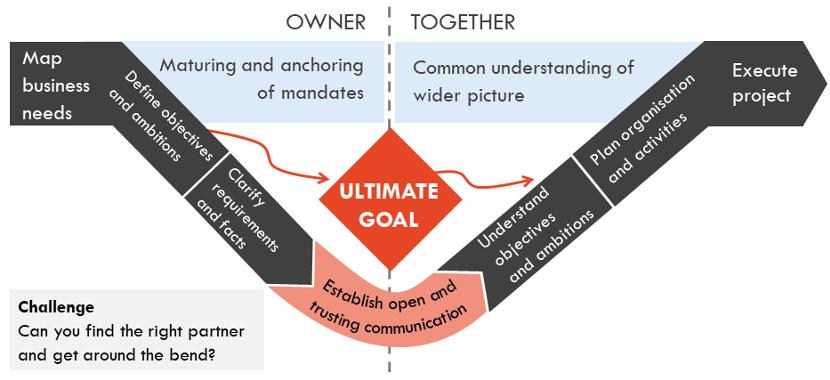
5 minute read
CONSTRUCTION, COMPLEXITY, COLLABORATION AND COVID-19
THIS ARTICLE DRAWS ON FINDINGS OF A RECENT ROUNDTABLE REPORT BY THE SCHOOL OF PROJECT MANAGEMENT AT THE UNIVERSITY OF SYDNEY ON INCREASING COMPLEXITY AND THE NEED FOR COLLABORATION IN CONTRACTING.
Construction is known to be one of the most important sectors contributing to social and economic growth, so it is unsurprising that the Australian Government has identified construction and infrastructure projects as vehicles to drive recovery from the impact of COVID-19. This article reports on feedback from interviewees regarding challenges of collaboration and contracting in recovery, in the face of COVID-19.
In early 2020, researchers at the University of Sydney, working with a visiting colleague from Norway, Professor Ole Jonny Klakegg, interviewed professional project owners and project managers. The participants were from a selection of public and private sector organisations, in the construction industry across New South Wales, Victoria and Western Australia. This resulted in a report on Designing Contractual Relationships for the Future, which is available from the School of Project Management at the University of Sydney.
Learning points for clients to set up successful projects through a collaborative and relationship-based approach to contracting, highlighted by the research, included:
• Deliver value to key stakeholders including society and users.
• Establish effective governance with roles and responsibilities defined and an effective collaborative delivery model.
• The owner organisation must prepare to fill their own role in the project.
• Ensure the project is attractive in the market to attract competition, competence, and capacity from the right suppliers.
• Invest in preparation for collaboration – training and mature mindset.
• Identify and develop a culture for successful collaboration from the start.
• Engage the right people with the right competences, on the right tasks at the right time.
• Identify the right partner.
The research investigated the effect of complexity on the preparations for entering a collaborative contract. A distinct pattern was found where the very complex projects need to establish a flexible framework for collaboration, whereas the less complex projects need to gather and structure existing information as basis for collaboration. The very complex projects require negotiations on the big issues and use of less precise definitions to allow for emergence and change. A high degree of integration between the parties is needed. Less complex projects need negotiations on more practical and operational issues, using precise definitions to allocate risks and rewards upfront.
Six of the interviewees represented public infrastructure projects of different types, sizes, and complexities.
All six projects were relatively complex. In June and July 2020, we revisited four of these projects to check if the COVID-19 situation had made serious changes to the situation that might influence the conclusions in the previous report.
Interviews confirmed that in established collaborations, ongoing work has been well managed through the COVID-19 period, from March to July 2020. However, we asked about the consequences of COVID-19 and the future:
IMPACT ON COMPLEXITY
The first question was concerning the COVID-19 influence on the complexity. The interviewees confirmed that there is no doubt the COVID-19 situation increases complexity, directly and indirectly. Consequences seem different depending on the situation of the owner. The factors that influence daily work are particularly travel restrictions and hygiene measures. The consequence for future projects may be more severe in terms of future uncertainties and financial situation. Delay and re-planning may be expected. Especially at the planning stage, this represents increased complexity.
Two illustrative quotes from one of our follow-up interviews:
IMPACT ON COLLABORATION IN ONGOING PROJECTS
The second question was on changes in collaboration between contract partners in ongoing projects. The answers indicated that COVID-19 seems not to qualify as a force majeure event under ongoing contracts. Neither does the situation seem to pose very serious consequences in established collaboration. The parties seem to be handling the COVID-19 situation well in general.
Practical changes include shifting from physical to virtual meetings and reviews, increased hygiene measures on site (sanitising; hand washing), prevention of transmission (personal distancing; staggered meal breaks; temperature testing onsite; traceability of personnel and their contacts; additional site facilities; additional training), administrative measures (extra record keeping, new protocols),

external relationships (additional fencing, social distancing, stakeholder information and community education). As one of our interviewees said:
IMPACT ON FUTURE CONTRACT STRATEGIES
The third question asked about the need for changes in future contract strategies, as identified in light of the COVID-19 situation. The answers indicate that at the time of interview, no new official policies had been announced. Some project owners already see the need for increasingly taking into consideration future COVID-like situations. The owner may have to retain the more extreme and unpredictable risks. Project owners need to negotiate the potential consequences, in particular those that are imposed by external factors such as government mandated closures, labour supply, and travel restrictions.
According to one of the interviewees:
CONCLUDING REMARKS
The impact of COVID-19 on current contracts seems less dramatic than feared. Milestones are still being met, and cost consequences seem to be moderate. Given current contract strategies the extent of claims to come from the first COVID-19 period may increase the perceived need for changes in future contracts. These are yet to be determined, but the need to learn from this current COVID-19 situation is evident. The future may hold significant changes due to increasing external complexity, especially on the client (project owner side).
Authors: Julien Pollack, Associate Professor, School of Project Management, the University of Sydney, Lynn Crawford, Professor, School of Project Management, the University of Sydney and Ole Jonny Klakegg, Professor, NTNU, Norway.










